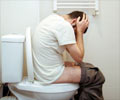- Hemorrhoids - (https://www.niddk.nih.gov/health-information/digestive-diseases/hemorrhoids?dkrd=hispt0249)
- Body changes and discomforts - (https://www.womenshealth.gov/pregnancy/youre-pregnant-now-what/body-changes-and-discomforts)
Hemorrhoids during Pregnancy
Pregnancy and vaginal delivery make women more prone to develop piles or hemorrhoids due to the pressure on the veins from the head of the growing baby on these veins. Associated constipation during pregnancy can aggravate the problem of piles. Additionally the hormone progesterone of pregnancy dilates the blood vessels and makes the veins more prominent. It mostly affects the younger women and it is estimated that almost 25% to 35% of pregnant women are affected by this condition in the third semester of their pregnancy.
Pain with bowel movements and bleeding are often the first signs of hemorrhoids.
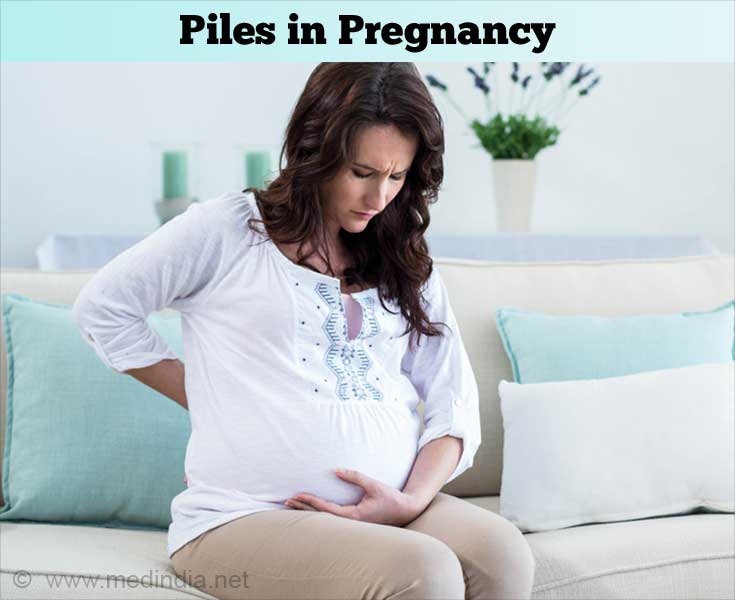
Most women will experience relief after giving birth to the baby and very few will require surgical intervention evaluation during pregnancy or after delivering.
Topical applications can treat the symptomatic piles quite effectively and are safe to be used.
What are Hemorrhoids?
Hemorrhoids are pillow-like vascular structures that lie beneath the mucous membranes lining the lower rectum and the anus. It becomes a disease when these veins are inflamed around the anus.
Two types of hemorrhoids can occur, namely External (outside the anus) and Internal (inside the anus) hemorrhoids.
The external hemorrhoids present with pain around the anus and swelling around the anus that is often accompanied by small amounts of mucus and microscopic stool particles causing irritation and itching.
The internal hemorrhoids cause no pain and manifest by painless, bright red rectal bleeding on bowel movement.
What Causes Hemorrhoids during Pregnancy?
Though the exact cause of hemorrhoids is unknown, factors that increase the pressure in the abdominal region are believed to be the culprits. The most common cause of hemorrhoids is the straining during bowel movements and increased pressure on the veins due to the descent of the baby into the pelvis in the third trimester.
Other factors that add to the problem include -
- Constipation
- Overweight & obesity
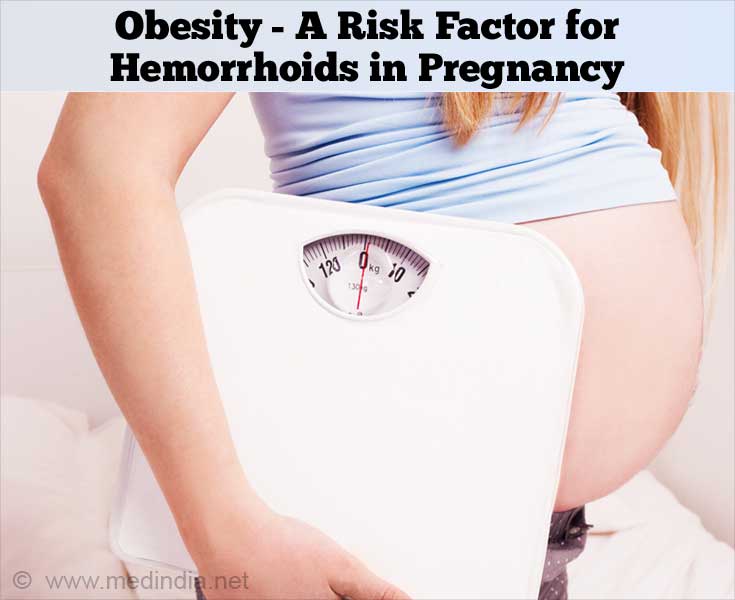
- Increase in the volume of body fluids during pregnancy along with the effect of hormone progesterone
What are the Symptoms of Hemorrhoids during Pregnancy?
Most small piles may not give rise to any symptoms except the bulge when the mother is examined.
- The painful and itchy ones are the external piles
- Painless bleeding indicates that they maybe internal piles
- A blood clot inside, external hemorrhoid (thrombosed piles) gives the feel of a lump around the anus and can be very painful
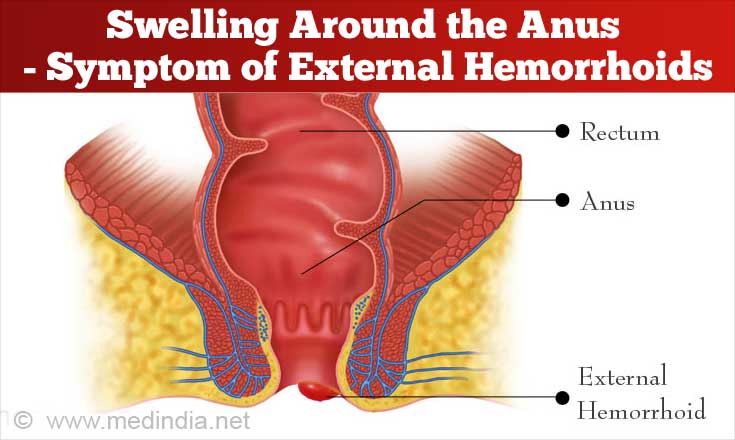
How do you Treat Hemorrhoids during Pregnancy?
Lifestyle Changes - Many patients get relief from disease symptoms by adopting some home treatments and making lifestyle changes by avoiding constipation and eating high fiber diet.
Laxative - A few randomized controlled trials have shown that treatment with laxatives has a beneficial effect in treating hemorrhoids.
Warm Water Bath - Bathing with water at a temperature of 40°C to 45°C for 10 minutes or sitting in a bath tub with warm water and salt helps to relieve pain and itching.
Surgical Intervention - Sclerotherapy, cryotherapy or surgery are for patients who have persistent symptoms even after a month of conservative therapy. This is rarely required during pregnancy.
Topical Ointments that have analgesics and anti-inflammatory properties can provide local relief from pain, bleeding and discomfort.
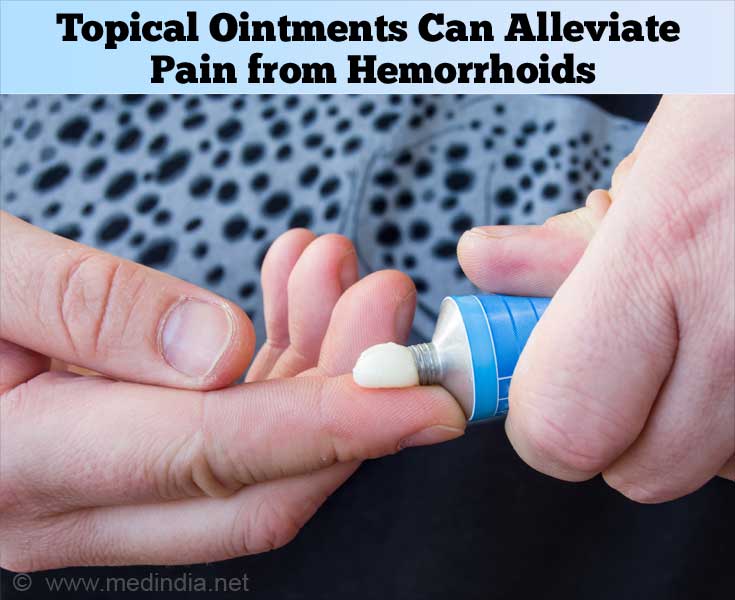
Ayurvedic Treatment - Ayurvedic treatment includes the use of figs soaked in warm water overnight and a mix of lemon ginger fresh mint in honey for improving digestion, thereby treating piles.
Health Tips on How to Avoid Hemorrhoids During Pregnancy?
The best way to avoid hemorrhoids, is to keep the stools soft, such that they pass easily. Some ways to maintain soft stools are:
- Doing regular exercises
- Avoid sitting for long periods of time in the same posture
- Use stool softeners if normally constipated
- Avoid putting on too much of weight during pregnancy
- Eat high fiber diet
- Use warm water bath with a pinch of salt in it if there is itching or pain.
- Boil a ripe banana in a cup of milk and eating it 3-4 times a day will aid in easy bowel movement.
- Drinking a glass of buttermilk with carom seed powder and a pinch of salt will also help in treating hemorrhoids.
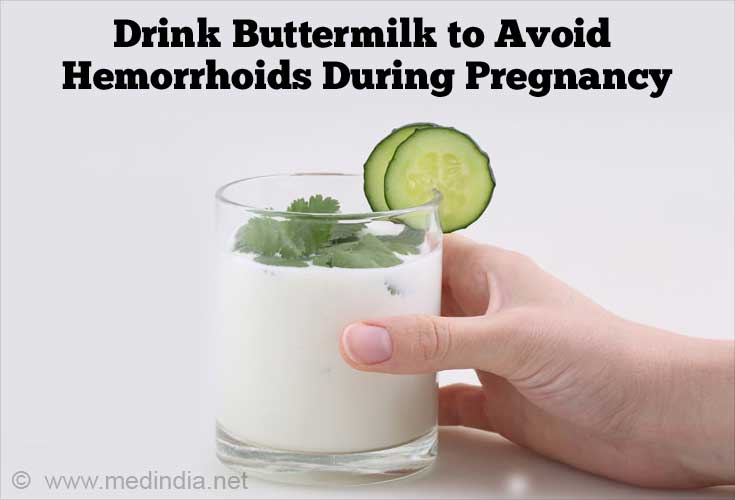
 MEDINDIA
MEDINDIA
 Email
Email

